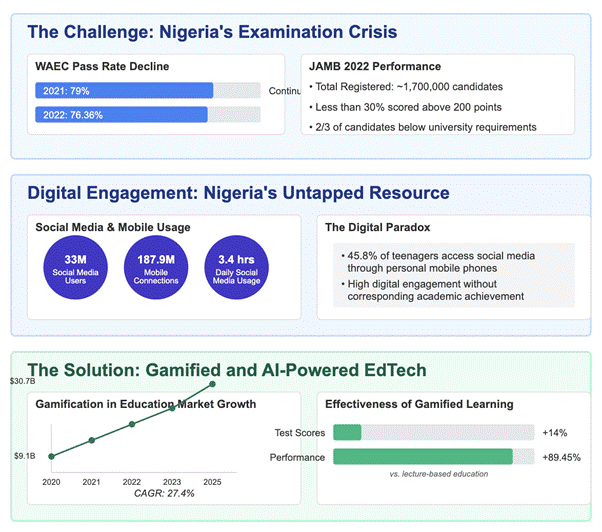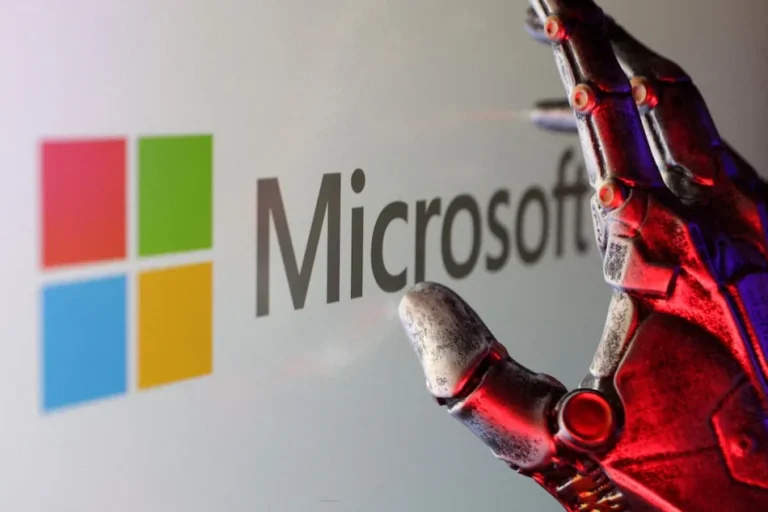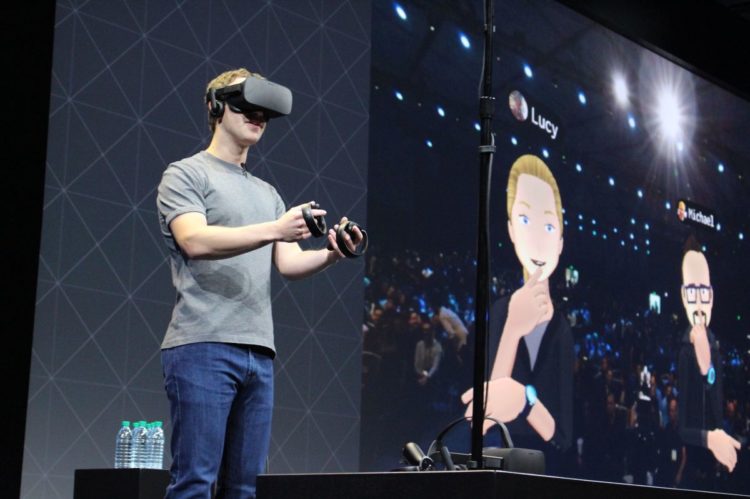Revolutionizing Student Success with Gamified and AI-Powered EdTech Solutions

Gamified and AI-powered educational technology is transforming Nigeria’s academic landscape, offering innovative pathways to address the nation’s declining examination performance rates while harnessing students’ digital engagement. Emmanuel Efosa AGHO, Expert in EdTech Solutions, explains how these technologies are revolutionizing learning outcomes, who stands to benefit from their implementation, what advantages they provide, when they prove most effective, where their impact is most significant, why they represent a paradigm shift in education, and how institutions can leverage them to enhance student success.

The integration of game mechanics and artificial intelligence into educational platforms represents a strategic response to Nigeria’s concerning examination trends. Recent WASSCE results show only 76.36% of candidates achieved credits in five subjects including English and Mathematics, while less than 30% of the 1.7 million JAMB candidates scored above the 200-point university threshold. Meanwhile, Nigerian youth demonstrate remarkable digital fluency, with approximately 33 million social media users spending an average of 3.4 hours daily on digital platforms. This digital paradox—where students struggle academically despite showing impressive technological engagement—suggests that the issue lies not in students’ capacity to learn but in how educational experiences are designed and delivered.
Gamification harnesses psychological drivers of motivation by incorporating elements like points, leaderboards, and narrative progression into learning environments. Research shows that students in gamified settings demonstrate up to 14% higher test scores compared to traditional methods, with challenge-based approaches potentially enhancing performance by nearly 90%. The global market for educational gamification reflects this potential, projected to grow from $9.1 billion in 2020 to $30.7 billion by 2025. By tapping into the same engagement mechanisms that make digital games compelling, educational platforms can transform passive learning into interactive experiences that students actively pursue.
Artificial intelligence further enhances these systems by enabling personalized learning at scale. AI-powered platforms continuously analyze individual performance data, identify knowledge gaps, and dynamically adjust content difficulty to maintain optimal challenge levels for each student. This adaptive capability proves particularly valuable in Nigeria’s diverse educational landscape, where classrooms often contain students with vastly different preparedness levels and learning needs. Unlike traditional teaching that inevitably targets the middle of the class, AI ensures that every student receives appropriately challenging material regardless of their starting point.
Implementation in the Nigerian context requires solutions designed for local challenges. Successful deployments feature offline-first applications that synchronize when connectivity is available, low-bandwidth content delivery systems, and interfaces optimized for affordable mobile devices. Teacher training represents another critical factor, as educators must feel comfortable integrating these technologies into their pedagogical approaches. Early implementations in Lagos and Enugu demonstrate promising results, with pilot programs reporting 45% increases in student retention, 36% improvement in assessment scores, and 350% growth in peer-to-peer learning interactions.
The strategic integration of gamification and AI in education extends beyond technological innovation; it represents a fundamental reimagining of how students engage with learning. By transforming education from a passive, obligation-driven experience into an interactive, personalized journey, these approaches can unlock the tremendous potential of Nigeria’s youth. As the country positions itself as Africa’s technology hub and seeks to develop a globally competitive knowledge economy, ensuring that educational methods align with the digital fluency of the next generation has become a strategic imperative.
Educational technology is not merely about adopting new tools; it’s about creating learning environments that resonate with how today’s students engage with the world. Emmanuel Efosa AGHO, through his work developing contextually appropriate EdTech solutions, is at the forefront of this educational transformation. By helping institutions implement gamified and AI-powered learning systems tailored to Nigeria’s unique challenges, he is enabling a new generation of students to achieve their full academic potential in an increasingly digital world.







